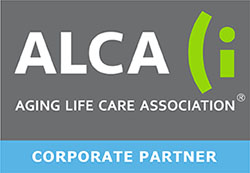During the past few years, most nationally branded franchise home care systems and many top home care providers have been acquired by private equity investors. These “buy & build” investors are attracted to the durable and ever-expanding demand fueled by a growing elderly population intent on aging at home until the end. These investors are especially attracted to the highly fragmented nature of the industry. To them, fragmentation means a unique opportunity for growth from consolidation.
The home care industry is widely considered consolidation proof due to most of the top performers being Manager owned franchise offices with agreements that prohibited them from selling to anyone other than another Managing Owner.
Today, the top quartile of the US home care industry consists of providers that generate annual revenue of 2.75M and above. There are currently about 5000 such providers. Most are franchises. That’s because the largest franchises are industry pioneers with high national brand awareness and community focused Managing Owners. The size and scale of these national franchise systems give them marketing and caregiver recruiting muscle that creates a competitive advantage.
To accelerate growth, many of these investment firms have formed company operations to acquire select franchisees within the network and non-franchise independents that could be converted to the network. This has put the consolidation proof theory to the test.
Early anecdotal evidence suggests this growth strategy is not yet working. The main reason is that many have underestimated the giftedness, relationships, leadership, passion, purpose and knowledge of these high achieving departing founders. In the intimate business of home care, families prefer to do business with other families. So in addition to a Managing Owner being difficult to replace with a non-owner, the family culture is often replaced with a corporate culture. The result has often been the loss of referral providers and employee productivity when the focus on “mission” feels like it has been replaced with “margin.” Or when the focus on purpose feels like it has been replaced with profit.
So what’s the right exit strategy for a high achieving, irreplaceable Managing Owner? The answer lies in a strategic succession plan designed to preserve the competencies, knowledge, culture and care legacy of the company. Often that means exiting the investment before exiting the operation. How replaceable are you? Let’s talk.


